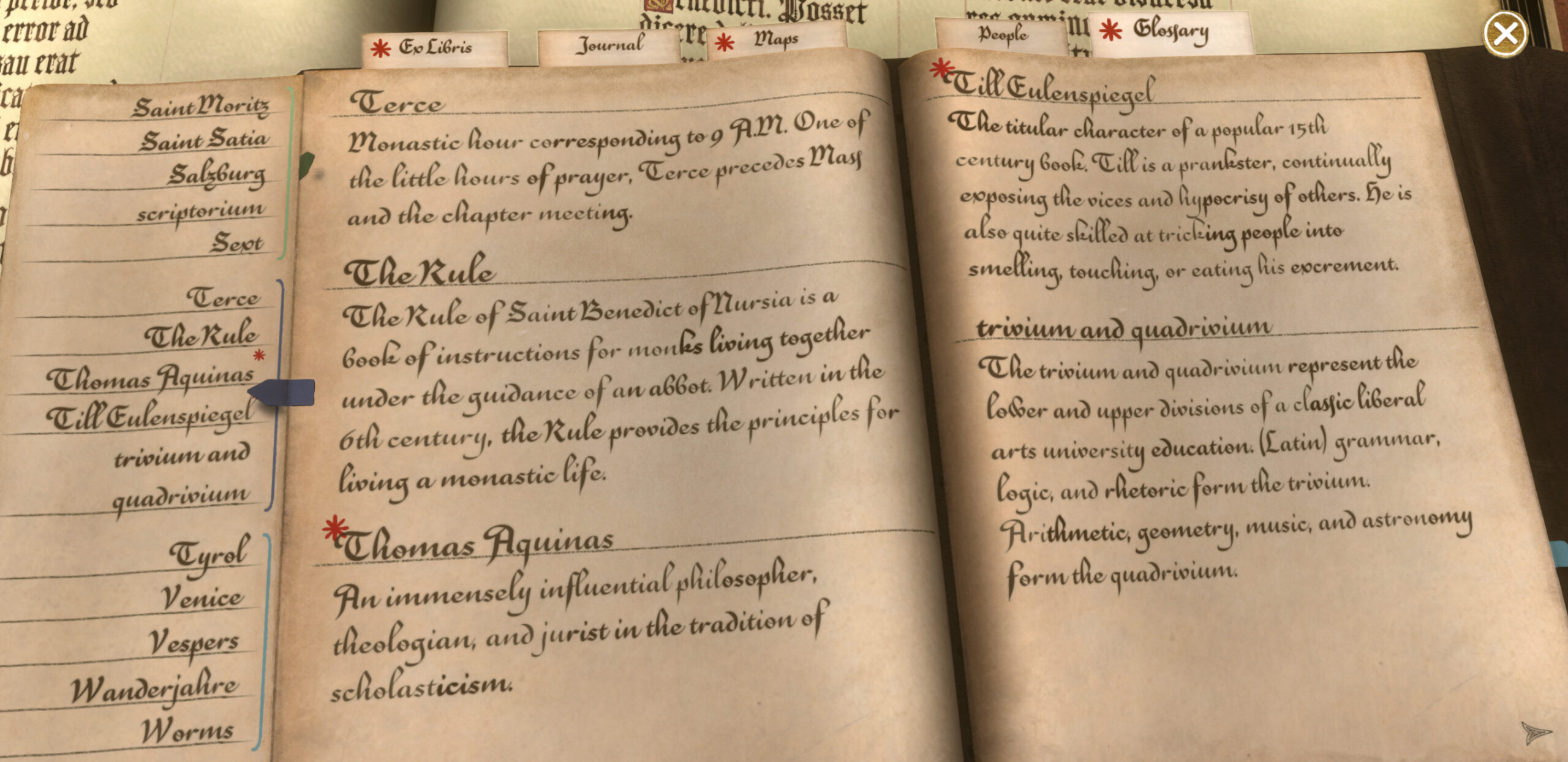

Pentiment is an amazing game of beautiful art and stylized text in the 1500s. One of the beautiful things about the game is that it gives you an artistic representation of life for the various classes of people, what they did in their day to day lives along with some religious and political intrigue.
What the game doesn’t do is give the player any edification on what is and isn’t true in the world around them. This is true in both Act I and Act II when you’re given the chance to weigh in on the investigation in town. In Phoenix Wright your job would be to accuse the actual perpetrator but in Pentiment, you’re given something a bit different.
That’s a lack of resources, time, access and knowledge to discover who did any of the main crimes in the game. At best you can provide what you’ve found and steer the town in a different direction than the default (for instance, in Act I the widow will be the one chosen no matter what if you don’t accuse Lucky or the Prior). Yet, you’re merely weighing in; more or less the final feather on the camel’s back of very Human choices in a very different time.


Focusing in on Act I, the murderer is never disclosed. You can accuse the Prior, due to his occult dealings assuming you go through the library and finish the cipher. You can accuse Lucky as well, following him to a grave and asking the town’s people about it along with the note. This will change the court’s mind, perhaps, but none of it is confirmative. You’re at best a fly on the wall with many other happenings around you.
Choices matter in other areas, of course. Like the masterpiece at the end can change. The ending mural can change. How players interact with you and what they share can change. What can’t change is doing “good enough.” You, Andreas, will never figure out the mystery of everything. There’s not enough time or evidence.
Going back to Act I, sure it could be Lucky because he’s got the strength and motive; but you’ve got no proof he was in the abbey at the time. The Prior naturally doesn’t do it, he’s a better choice though than the innocent monk because he is dabbling in the occult which is outlawed at the time. Finally the widow naturally didn’t do it, she’s just the town’s scapegoat.
You’re not getting more resolution than that. Which, while an interesting design choice, is different than most games. You’re not playing as the hero of this story. You’re literally just a traveler through this town during some rather interesting times. That’s all.
If you find yourself frustrated trying to find the murderer in act I or act II don’t worry; the game literally doesn’t tell you. Make the choices you feel best with, the game more or less has the same outcomes; just different characters and different dialog come from the consequences.
Regardless of who did the actual what, the real villain is revealed to be Father Thomas. The local saints are based around Roman gods and the murders were based on covering that up. While you don’t know who did it, you do find out that Father Thomas was the one who was pushing the strings behind the curtain to set the events in motion.
That’s about all there is to Pentiment. To wrap up, your choices matter in the story the game tells you but not in producing a “winning” state. You can’t win any other way than by enjoying the narrative you craft.
Want to tighten up your timing and play like a pro? This guide dishes out…
Want to crush it in Marvel Rivals? Learn how to build killer 6v6 teams with…
Want to crush it in VALORANT? This guide breaks down Agent roles, pro tips, and…
Yeehaw! Cozy up in the Wild West with Cattle Country—farm, befriend, and explore before its…
Cowabunga! TMNT: Splintered Fate hits PlayStation May 20 and Xbox June 24—plus physical editions drop…
Strap on your VR headset—Surviving Mars: Pioneer lands in Early Access May 8! Build, explore,…
This website uses cookies.